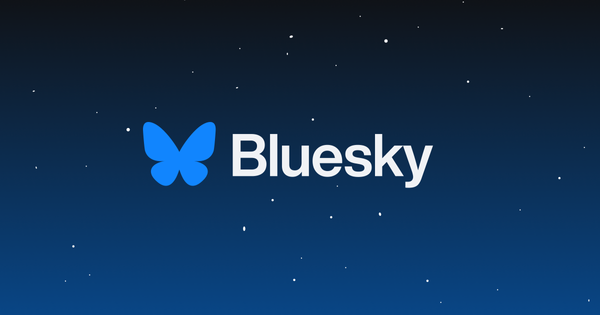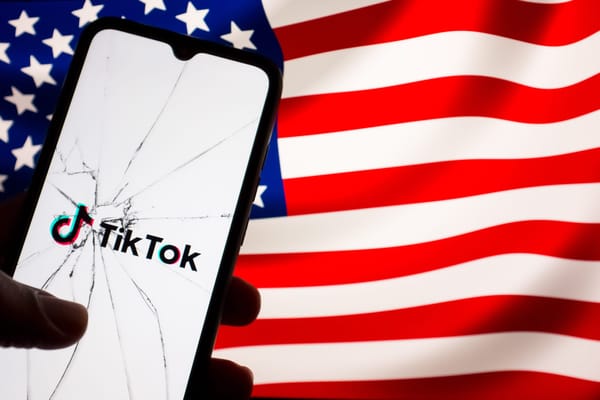Elon Musk joins the Twitter board
Task #1: undermine CEO, consolidate power

Today, let’s talk about what Elon Musk means for the future of Twitter.
To say the relationship between the Tesla CEO and the social network is changing rapidly is an understatement. On Sunday, as far as the world was concerned, Musk was simply one of Twitter’s most famous users. On Monday, it was revealed that over the past month he has become its largest individual shareholder. On Tuesday, Twitter CEO Parag Agrawal announced that Musk now has a seat on the board.
Here are Kate Conger and Mike Isaac at the New York Times:
Mr. Musk had ideas for reshaping social networks that dovetailed with those of Mr. Agrawal and Jack Dorsey, Twitter’s co-founder, according to their public exchanges. All three have floated the notion of radically shifting the power in social networking to users and away from behemoth companies, by using an approach to technology that would give people control over what they see in their social media feeds.
In the ensuing weeks, Mr. Agrawal discussed having Mr. Musk become a more active participant in Twitter’s future, according to two people with knowledge of the conversations who were not authorized to speak publicly. Mr. Agrawal also welcomed having Mr. Musk — who has more than 80 million Twitter followers and sometimes tweets a dozen or more times a day — join the company’s board, one of the people said.
Musk’s surprise stake in Twitter has been the biggest story in tech this week. In part, that’s an artifact of the public’s near-total fascination with all things Musk. It also illustrates how Twitter’s status as the heartbeat of the global news cycle means that any Twitter-related stories can dominate the news: no matter what happens on Twitter, you can be assured that every Twitter user has an opinion about it.
Because Musk represents himself online as a kind of mischievous trickster god, his Twitter stock purchase has been covered to date primarily through the lens of shenanigans: the world’s richest man amusing himself with what Ranjan Roy called “the shitpost to end all shitposts.” (For my part, I likened it yesterday to Loki buying an ant farm.) And certainly Musk’s behavior online over the past couple days has done little to suggest that his stake represents anything other than the antics of a prankster; his first official comment on the $2.64 billion purchase was “oh hi lol.”
But the hubbub has served to obscure what has been a tumultuous time at Twitter in general. It has barely been four months since Dorsey unexpectedly stepped down from Twitter after a campaign from the activist investor group Elliott Management Corp. Elliott had taken a 4 percent stake in the company in 2020 and set out to replace Dorsey due to the company’s stagnant stock price and weak user growth.
Elliott left the board just over a year later, apparently satisfied with Twitter’s progress. But as a condition of leaving, it had set aggressive goals for the company that Dorsey was not close to meeting: growing its user base by 100 million people, accelerating revenue growth, and gaining market share as a digital advertiser. When Dorsey left Twitter, it seemed clear that the pressure to hit these marks had been part of the reason.
Those goals are now Agrawal’s responsibility, and in the first few months of his tenure there have been few signs of how he intends to achieve them. Yes, the company is working to diversify its revenue beyond advertising by adding subscription projects and tools for creators. But it lost money in the most recent quarter, and added barely 6 million new users.
All of which is to say that Twitter remains vulnerable to a challenge from Elliott or other activists investors down the road, who might work to force out Agrawal or one again pressure the company to sell itself.
This, to me, is maybe the most interesting dimension on which to consider Musk joining the board. As the Times story details, Musk has been friendly both with Dorsey and Agrawal. (Although Musk did once post a meme comparing Agrawal to Stalin?) They all are enthusiastic about the idea of turning Twitter into a decentralized protocol. They all like cryptocurrencies.
And, publicly at least, they are all very excited about the fact that Musk has joined the board. (Here are Agrawal, Dorsey, and Musk on that subject.)
If you take all that at face value, it’s possible Musk’s presence on the board will serve as a kind of bulwark against Elliott and other investors. While he will have only one vote out of 12, his status as both the platform’s largest shareholder and most influential board member will likely give him soft power that exceeds his technical authority.
Moreover, Musk joining Twitter has effectively turned it into a meme stock, with investors sending the price up 27 percent on the day his stake was announced. Assuming that holds true — it was up another 2 percent today — activist investors could have an even harder time mounting a challenge to Agrawal’s leadership. (It’s also good for attracting and retaining talent, whose compensation is often tied partially to the stock price.)
The remaining question, then, is whether Musk himself intends to be an activist investor. Or rather, given his tweets so far, what kind of activist investor he wants to be.
We know that Musk has mused about starting an alternative social network that has fewer restrictions on what people can post. This has led to speculation that he might seek to loosen Twitter’s content moderation policies, or even champion Donald Trump’s return to Twitter.
We also know that Musk’s first official act as Twitter board member was to ask his 80 million followers whether Twitter should have an edit button. (In fairness, I had asked Musk to weigh in on this subject myself.)
If there was any thought that Twitter Inc. would ignore this sort of rogue product development on the part of its board members, the way you nod politely at an uncle who’s “just asking questions” at Thanksgiving dinner, Agrawal put that idea to rest rather quickly.
The consequences of this poll will be important. Please vote carefully.
— Parag Agrawal (@paraga) 1:23 AM ∙ Apr 5, 2022
Perhaps Agrawal is winking at us here. There’s nothing wrong with having a little fun online, nor should we fault him for wanting to build a little goodwill with his most influential board member.
But it’s also true that this sort of thing can be a real distraction for a CEO who absolutely has bigger fish to fry. As Dorsey’s hand-picked successor, Agrawal was already going to face criticism that he was simply more of the same from a company that has struggled to live up to its potential. The fact that Dorsey left the board, though, had given Agrawal an opportunity to begin crafting Twitter according to his own plans.
Now that Musk is around, though, with his viral polls and stream-of-consciousness product suggestions, Agrawal may find himself struggling to balance his own vision against that of an unpredictable board member with a much louder megaphone.
One of the most famous tweets about Twitter came from Dick Costolo, who upon joining the company as chief operating officer in 2009 posted an infamous joke:
First full day as Twitter COO tomorrow. Task #1: undermine CEO, consolidate power.
— dick costolo (@dickc) 9:49 PM ∙ Sep 13, 2009
The joke is infamous because in the end it came true: just over a year after he tweeted it, Costolo was chosen by Twitter’s board to replace then-CEO Ev Williams.
Musk is so chaotic that it feels like a fool’s errand to predict what sort of tasks he will take on as Twitter board member. But I can’t be the only person who wonders whether, intentionally or not, he’ll undermine the CEO.
If I were Parag Agrawal, I’d watch my back.
Elsewhere in Elon: Ranjan Roy looks at Musk’s extended battle with the Securities and Exchange Commission and its possible intersection with his decision to buy a bunch of Twitter. Matt Levine looks at potential SEC issues that could arise from what Musk disclosed about his acquisition, and when, and how.
Elsewhere in Twitter: The company said that, yes, it’s building an edit button, and no it’s not because Musk is making them.
Governing
- Russia has successfully promoted disinformation in Spanish-speaking countries, a potential reflection of platforms’ under-investment in content moderation outside of the United States. (David Klepper and Amanda Seitz / AP)
- An internal chat app for Amazon workers may ban the use of words such as “union,” “pay raise,” "and “restrooms.” (Ken Klippenstein / The Intercept)
- Spotify’s Parcast union says it is ready to strike over new contract terms. “Outstanding issues include staff diversity, control of intellectual property rights and pay.“(Ashley Carman and Josh Eidelson / Bloomberg)
- Meta commissioned a report to tout the human-rights benefits of encryption. (Joseph Menn / Washington Post)
- LinkedIn changed its job-ads policy to permit companies to explicitly recruit “members of groups historically disadvantaged in hiring,” after it controversially removed ads of that nature in Brazil. (Jack Nicas and Flávia Milhorance / New York Times)
- Robert Malone, a prominent spreader of vaccine misinformation, is making at least $31,200 a month on Substack. And all of his posts are free to read! (Davey Alba / New York Times)
- A romance scam based on the arcane crypto concept of “liquidity mining” has duped $66.3 million out of people since August. (Jeremy B. Merrill and Steven Zeitchik / Washington Post)
Industry
- Amazon will launch rockets 83 times over the next five years to build a service that delivers the internet from space. Unfortunately, the internet will then be stolen off your front porch. (Loren Grush / The Verge)
- Pam Greer, who led Amazon’s effort to be “Earth’s best employer,” left the company. See if you can come up with a relevant joke about this turn of events! (Matt Day / Bloomberg)
- Apple’s Worldwide Developer Conference will take place from June 6-10 as an almost entirely virtual event. (Juli Clover / MacRumors)
- Trades on fast-growing NFT trading platform LooksRare appear to be 95 percent wash trading, and have helped to obscure the decline of NFT trading in 2022 generally. This is nuts. (Olga Kharif / Bloomberg)
- Starbucks CEO Howard Schultz announced that the company is going to do … something … with NFTs. Did someone say “token-gated Frappucino”? (Edward Ongweso Jr. / Vice)
- A decentralized Google Maps that incentivizes people with crypto tokens? Sounds interesting to me. (Andrew Hayward / Decrypt)
- Roku’s stock rose after it signed a multi-year distribution deal with Amazon that will see the Prime Video app remain available on Roku TVs. (Etan Vlessing / Hollywood Reporter)
- Unofficial Bridgerton Musical became the first project originated on TikTok to win a Grammy. (Jazz Tangcay / Variety)
- A profile of 30-year-old billionaire and FTX founder Sam Bankman-Fried, who drives a Carolla and has promised to give away 99 percent of his earnings. (Zeke Faux / Bloomberg)
Those good tweets
a weighted blanket is not enough i need to be compressed into a .zip file
— dirt creature ✨ (@mgrace1179) 2:13 AM ∙ Mar 24, 2022
That is a really specific category but I suppose someone had to win it.
— Matt Burnell (@mdburnell) 12:15 AM ∙ Apr 4, 2022
[After leaving Willy Wonka’s factory]
— Andrew Nadeau (@TheAndrewNadeau) 8:08 AM ∙ Jan 23, 2019
ME:
WIFE:
ME:
WIFE:
ME:
WIFE: Lot of deaths for a to—
ME: A LOT of deaths for a tour!
I apologize for the thoughts in my head
— River_Tam (@RiverTamYDN) 3:37 AM ∙ Mar 30, 2022
Talk to me
Send me tips, comments, questions, and Musk predictions: casey@platformer.news.





